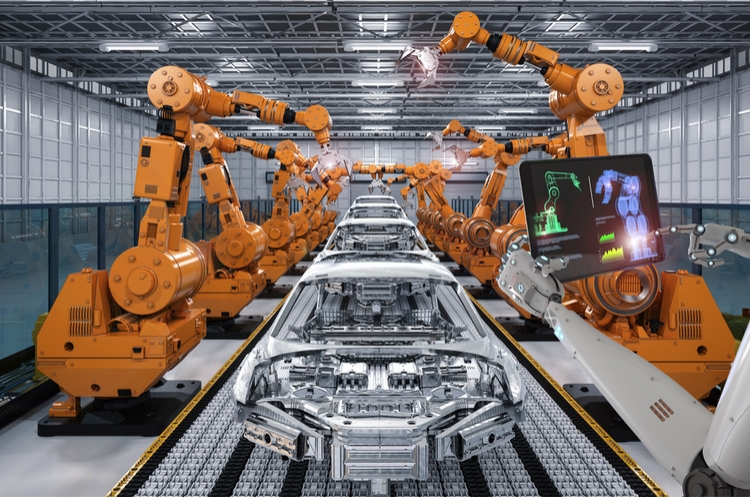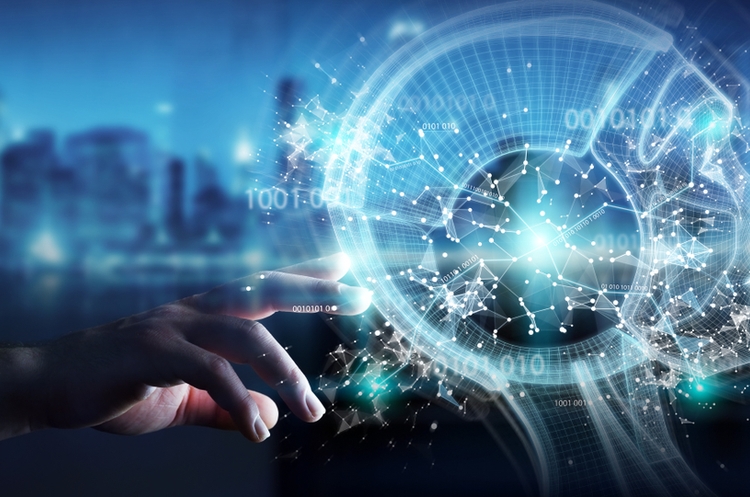Impact of Artificial Intelligence on Society
Even more dangerous ravings of a carbon-based life form

In my last blog post on this subject, I posed a bunch of questions:
All of which brings me to the whole point of this mad rant: how will artificial intelligence affect ordinary people? What will be its impact on our everyday lives from the social and ethical points of view? What will we think of ourselves when we can’t tell the difference between a phone call with a machine and a phone call from Madge in North Sydney, Nova Scotia? Will we swoon over computer-generated art the way we rave about Matisse and Dégas? Will we hear the beauty and grandeur in computer-generated music the way we hear it in Beethoven? Even if it’s every bit as good, will we have the human magnanimity to regard it that way? And what about how artificial intelligence will impact how we make a living??
Much smarter guys than I am – like Dr. Stephen Hawking, Elon Musk and Jaan Tallinn – have warned that artificial intelligence places humanity at risk. Or maybe that should be “greater risk” because our existing technology, which isn’t smart at all, is already putting us at risk as well as helping us. Admittedly, they are not experts on artificial intelligence, but I’d rather be scared to death by a billionaire than by anybody else.
To respond to the conundrum of artificial intelligence, we can look to the past and see how revolutionary technology has affected society. We might then be able to extrapolate our findings from then to now.
McKinsey & Company has written a great briefing note on how modern technologies affect the workaday world. It’s called “Technology, jobs, and the future of work.” I recommend it to you.
McKinsey points out that technology is already supplanting low-skill jobs, resulting in the stagnation of household incomes in other jobs. On one hand, AI-driven technology is increasing the productivity of factories. On the face of it, that’s a good thing. But, undeniably, it is bound to leave some people, at least in the near future, without jobs.
It must be argued that technology has always had this effect on society. Steam-driven cotton gins replaced the labour of many people. Eventually, the people who used to make cotton fabric got into other lines of work, got better educated (or their kids did) and ultimately enjoyed the benefits of cheaper cotton goods of better quality. Same thing with steam tractors and horse-drawn ploughs. It’s the upheaval that happens between the innovation and “eventually enjoying the benefits of innovation” that leads to the social problem of what to do about workers whose jobs were eaten alive by machines and other advanced technology.
We just don’t see that many milkmen with their horse-drawn vans, elevator operators, linotype operators, chimney sweeps, bowling alley pinsetters, steam locomotive engineers, railway signalmen, clock-winders, ice delivery men, switchboard operators, blacksmiths, lamplighters and chamber-pot wranglers. Ah – and let’s not forget town criers, who were the Twitter-feeds of their day.
But the people who would have had those jobs, but for the technology that replaced them or their parents, are now doing something else. And that something else is probably cleaner, better paying and more interesting.
There’s a great book called Superintelligence: Paths, Dangers and Strategies by Nick Bostrom, in which the author talks about the impact of machines that are smarter than we are. He argues that the “intelligence explosion” caused by superintelligent machines would be catastrophic for human beings as a matter of ordinary course. He urges the creation of rules and ethics around machine learning and artificial intelligence for the purpose of limiting the potential for social damage.
Stephen Hawking says that it is a mistake – possibly the worst mistake in history – to imagine that highly-intelligent machines are merely science fiction. He even avers that artificial intelligence could spell the end of the human race.
We already know the effects that can occur when people become dependent on machines. Mental arithmetic is gone because of calculators. No one knows how to drive a manual transmission car. No one can read a map because of GPS. There are many examples of how ordinary technology can affect people. Imagine the effect of artificial intelligence on how we think.
McKinsey points out that in the developed world there are already almost 300 million people who are not in the work force. Two-thirds of those have basically given up the prospect of working. Of those in the entire world who do work, it is estimated that anywhere from 30 to 45 percent are grossly underutilized. Over 75 million youth in the world are officially recognized as unemployed. Over 655 million fewer women than men are economically active. (Gender equality in economic activity alone would increase global GDP by $12 trillion by the year 2025.)
Worse, available skills do not rise to the levels needed by business. Business finds it easier and cheaper to acquire technology that can “learn” the skills, and perform better, than to accept unprepared human resources who are ultimately more expensive and less productive. It’s horrific when a business wants to hire somebody and simply can’t find anyone with the requisite skills.
It is even the case that professional people can find their jobs threatened by computers that don’t get tired, don’t make mistakes, don’t miss a comma or a number or a spelling error. Why would you get a law student to pore over a thousand documents at x dollars per hour when a computer can do the same job more cheaply and accurately? Do you hire fewer law students? Or do you re-think your business and get them doing other things – things that computers cannot yet do – that are more aligned with their wonderful potential and agile minds?
There’s no clarity on that question yet, as you all probably know. But we have to ask it and answer it, or a computer will provide an answer that we may not like.
That’s a lot of untapped human potential. And it has led to a lot of unhappiness, depression, anomie and disconnection from society. And yet, the technology that replaced all those people has helped people in general to live better lives. It’s a timing issue: immediate pain for future gain.
So the question is whether intelligent tools and equipment can be deployed in such a manner as to allow people more opportunities to do more interesting and beneficial work, with perhaps a little more “down time” – or whether our robotic friends will swallow jobs and leave a huge part of society with nothing to do?
These questions are getting tough. I’ll try to shine a light on them in my next post.




